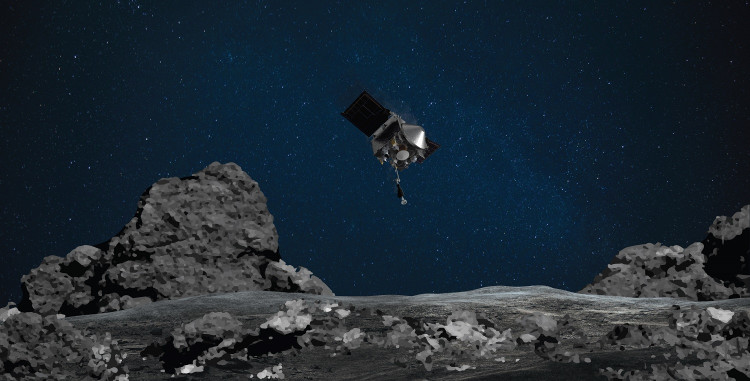NASA's OSIRIS-REx is due to end its mission on asteroid Bennu as the spacecraft begins its return to Earth. The asteroid sample-collector snagged clumps of rocks and dirt from the massive space rock in October 2020.
The initial task plan called for OSIRIS-Rex to depart Bennu's vicinity with this valuable cargo on March 3. But the departure date has been postponed to May 10, NASA officials announced Tuesday, Jan. 26.
The new plan would not change ETA for the Bennu samples. They are still expected to come back to Earth, in a special return capsule, in northern Utah on Sept. 24, 2023, NASA officials said in the same statement.
Fuel efficiency is not the only possible advantage of the new Bennu departure date. The OSIRIS-Rex team is investigating the possibility of carrying out a last near asteroid trip, a "farewell tour" in April that would take the probe just two miles (3.2 kilometers) from Bennu's rough surface.
"We want to go back and say goodbye to Bennu and also document the state of the surface post-TAG," Dante Lauretta, OSIRIS-REx principal investigator, said Tuesday: "We're optimistic that we're going to be able to do this, but it's not guaranteed yet."
"TAG" refers to the Oct. 20 spacecraft sample collection event "touch and go," which, on the floor of a crater, called Nightingale, disrupted Bennu's surface considerably. The collector head of the spacecraft penetrated the asteroid by 1.6 feet, Lauretta said. And OSIRIS Rex's thrusters stirred things up further during the "back away burn" of the probe that day.
The spacecraft will remain in the vicinity of Bennu's until May 10, when the mission enters the Earth Return Cruise stage. As it approaches Earth, OSIRIS-Rex will eject the Sample Return Capsule. The SRC would then journey through the Earth's atmosphere and land under parachutes on the Utah Test and Training Range.
Once recovered, NASA will move the capsule to the curation facility at the Johnson Space Center in Houston and distribute the sample to laboratories around the world, allowing scientists to research the origin of our solar system and Earth as a habitable planet.
OSIRIS-Rex may have more work to do after finishing up the farewell tour and dumping the Bennu samples here on Earth. In 2022, the mission team expects to apply to NASA a request for an extended mission, which may include sending OSIRIS-Rex to investigate the potentially hazardous Apophis asteroid when it makes an Earth flyby in 2029.





